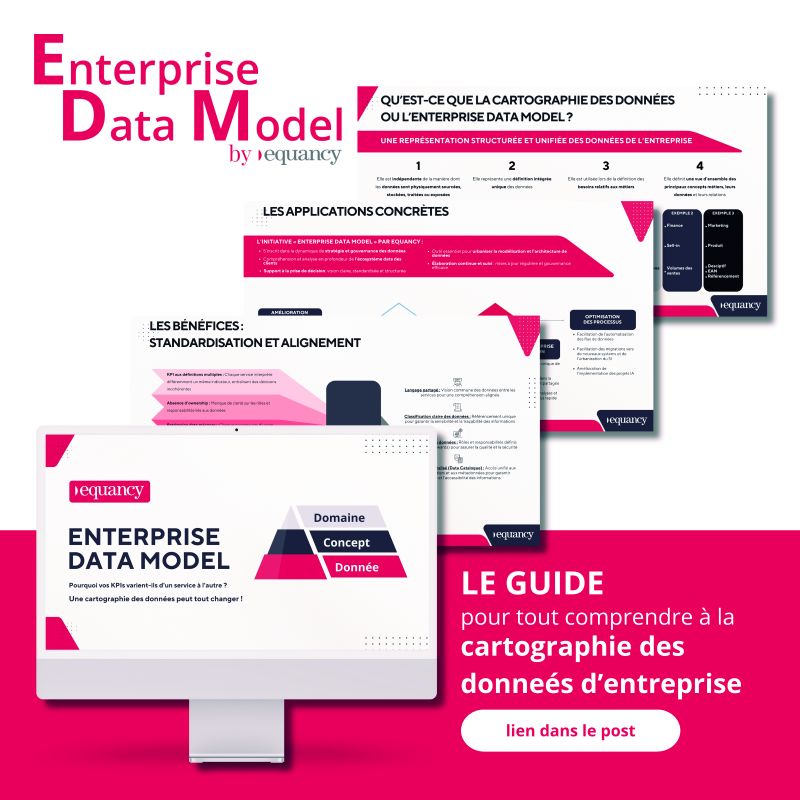#1 - Artifical Intelligence
Can't tell the difference between machine learning and deep learning? Data warehouse vs. data lake? DMP or CMP? Abcd*glossary is there for you! Every month, we help you to see more clearly by reviewing a key digital or data concept.
For this first issue of abcd*glossary, let's talk about Artificial Intelligence. A widely used buzzword... and overused! An opportunity to review together this omnipresent concept..
The term Artificial Intelligence (AI) is far from being new. It was first used in the mid-1950s by American scientist John McCarthy. AI refers to algorithms which aim to mimic a form of human intelligence. By analyzing and exploiting data of any format, these computer programs can perform complex tasks with remarkable accuracy and speed.
The current rise of AI is due to a combination of multiple factors, including the digitization of processes - which has enabled the creation of a considerable volume of data - the increase in computing power and storage capacity, and improvements in algorithms, such as deep learning.
The rise of AI is due to a combination of multiple factors, including the digitization of processes that has allowed for the creation of huge amounts of data, increased computing power and storage capacity, and advances in algorithms such as deep learning.
AI uses supervised learning because it is based on different human cognitive processes. It is composed of deep learning, but also machine learning, which ensures that artificial intelligence improves progressively and autonomously. Nevertheless, machine learning has two main limits: theoretical on the capacity of an algorithm to solve different tasks; and practical on the capacity of computers to manage the complexity of the problems to be treated.
Artificial intelligence is composed of two distinct categories: Weak AI and Strong AI.
Weak AI is an intelligence that is limited in the execution of specific tasks. In a way, it tries to reproduce human behavior as closely as possible. The primary function of this technology is to perform tasks that we ask it to do. When you get a recommendation from Netflix or Spotify, think of this as weak AI.
Strong AI, is similar to humans in that it is willing to replicate intelligent behavior. Its sentient intelligence allows it to have real self-awareness and analyze its feelings and reasoning. All the researchers in the field of strong AI, affirm the limits of this project which remains ambitious for the moment. Voice assistants, such as Alexa, Cortana, OK Google or Siri, are notable illustrations.
AI is already an integral part of our daily lives without us always noticing it. AI has impacted all sectors, especially in the food industry which benefits from increased productivity. The implementation of chatbots, with 24/7 availability has become one of the best allies of customer services. Healthcare professionals have also been seduced by artificial intelligence. It has opened the way to preventive medicine. AI is also behind the recommendation engines of e-commerce sites, behind the automatic classification of photos by location or by person in cell phones, in automatic translations or behind the management of itineraries based on GPS traffic.
Despite the many advantages it can offer, it also has important limitations, because in some cases machines can fail and human intelligence is better than artificial intelligence. The first important limitation of AI is its inability to evolve without the use of pre-researched data or past experiences. AI is unable to be creative in its approach. It raises questions about employment, data confidentiality, privacy, violation of ethical values, and trust in the results. The second limitation to consider is the reliability of your data.
Today, even if artificial intelligence is well developed on semantic detection, some aspects of language are still too technical to understand, such as sarcasm or ambivalence.
Is it possible to move towards a promising AI?
Ask Amazon Go.
To put an end to preconceived ideas about Artificial Intelligence, we invite you to (re)see this interview with Charlotte Weill, Equancy's CEO
And our book dedicated to the new levers of value creation to be be downloaded here




